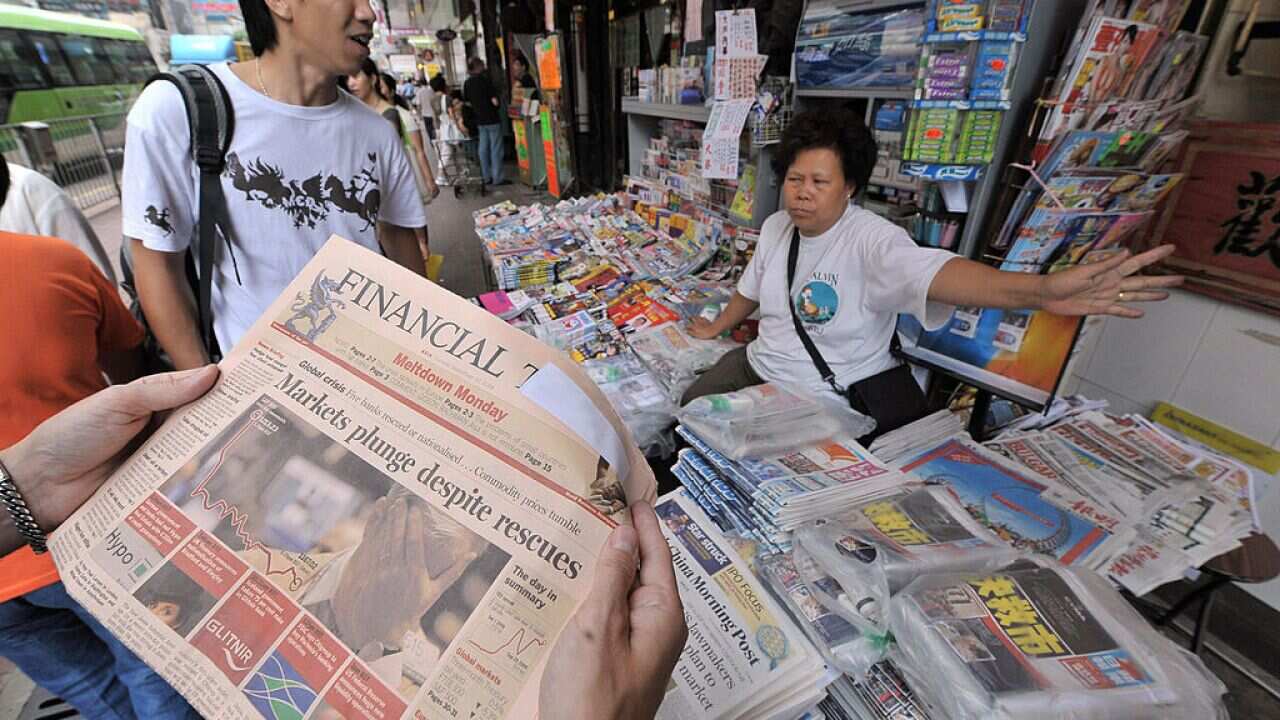Yu Shaolei, Culture Editor of the Southern Metropolis Daily in China’s Guangdong province, posted a photo of his resignation letter on his Weibo account. The note said he could no longer toe the Communist Party line or "bear the surname" of the party.
His comments refer the President Xi Jinping’s widely publicised tour of China’s top three state media organisations in February, where he said that the allegiance of all journalists was to the party.
Yu had worked for the newspaper for more than 15 years. Though his social media post was quickly deleted by online censors, a cached version is still available on the FreeWeibo monitoring site.
"I'm getting old and have been kneeling so long I can’t bear it," he wrote in the post. "Now I’d like to try to change posture."
Knowing his note would be removed from Chinese social media, Yu added: "To the person responsible for watching my Weibo feed and notifying supervisors about what to delete, you can heave a sigh of relief. Apologies for causing you stress these past few years, and I sincerely hope your career will head in a new direction."
Yu's letter is the latest expression of defiance by those frustrated by Xi Jinping’s efforts to silence voices that don't toe the party line.
Property tycoon and businessman Ren Zhiqiang had his social media account deleted by censors after condemning Xi’s comments on the media. His Weibo account had more than 37 million followers.
Recently more than 20 people have been arrested after an anonymous letter calling for Xi Jinping's resignation was published on the state-affiliated website Wujie News.
Chinese dissident Wen Yunchao, who currently lives in the United States, said members of his family had been detained, though he denied any connection to the letter. Last week columnist Jia Jia was arrested, and later released, after reportedly being suspected of penning the article.
German-based dissident Zhang Ping, also known as Chang Ping, said on Monday his siblings were being held in retaliation for writing about Jia Jia’s detention on the website of German broadcaster Deutsche-Welle. Authorities maintain that his relatives are being investigated on charges of arson.
Australian policy consultant David Kelly runs Beijing-based thinktank China Policy. He said the government had always had strict control of the media, but the public’s attitude toward it is changing.
"Something has happened in the relation between the power centre in the party and public opinion. Public opinion is not sitting still, public opinion is very different from what it was 50 or 60 years ago," he said.
Authorities have also announced regulations that will increase the party’s oversight of the media.
At the end of February, a new law was announced banning foreign companies from publishing content online. While the law takes effect this month, its scope remains unclear.
Although a number of western media sites are already blocked in China, many others still providing content to Chinese users via foreign internet servers.
On Monday, draft guidelines were posted on a government website that would prohibit Chinese internet service providers from allowing connections to websites with domains or internet addresses registered outside China. Violators would face fines of more than $5,000.
The government has not commented on its plans to concretely implement the guidelines, as similar rules have in the past been poorly enforced. But many believe it is in line with the government’s recent efforts to maintain tight control of China’s media and information sphere.

